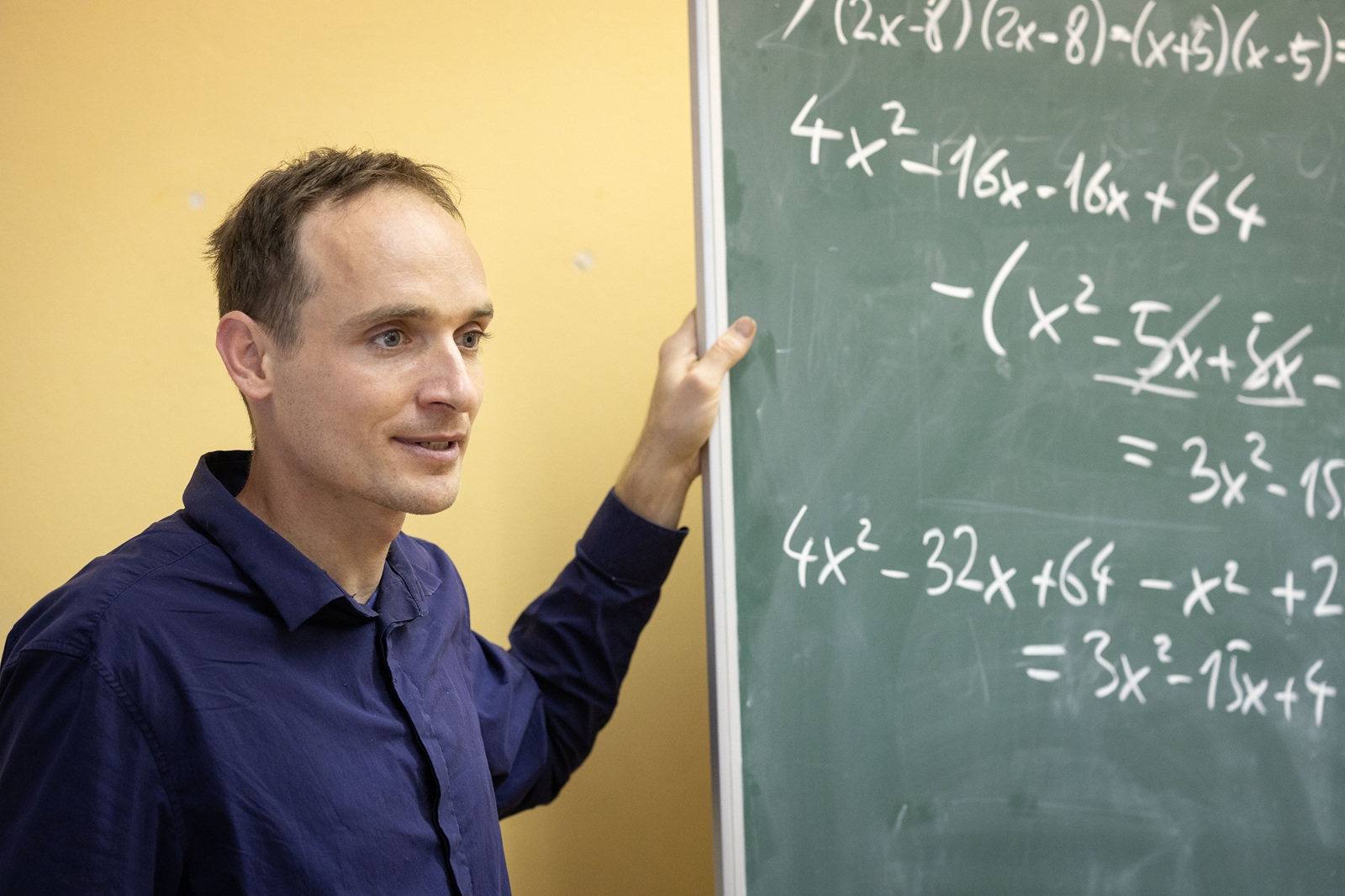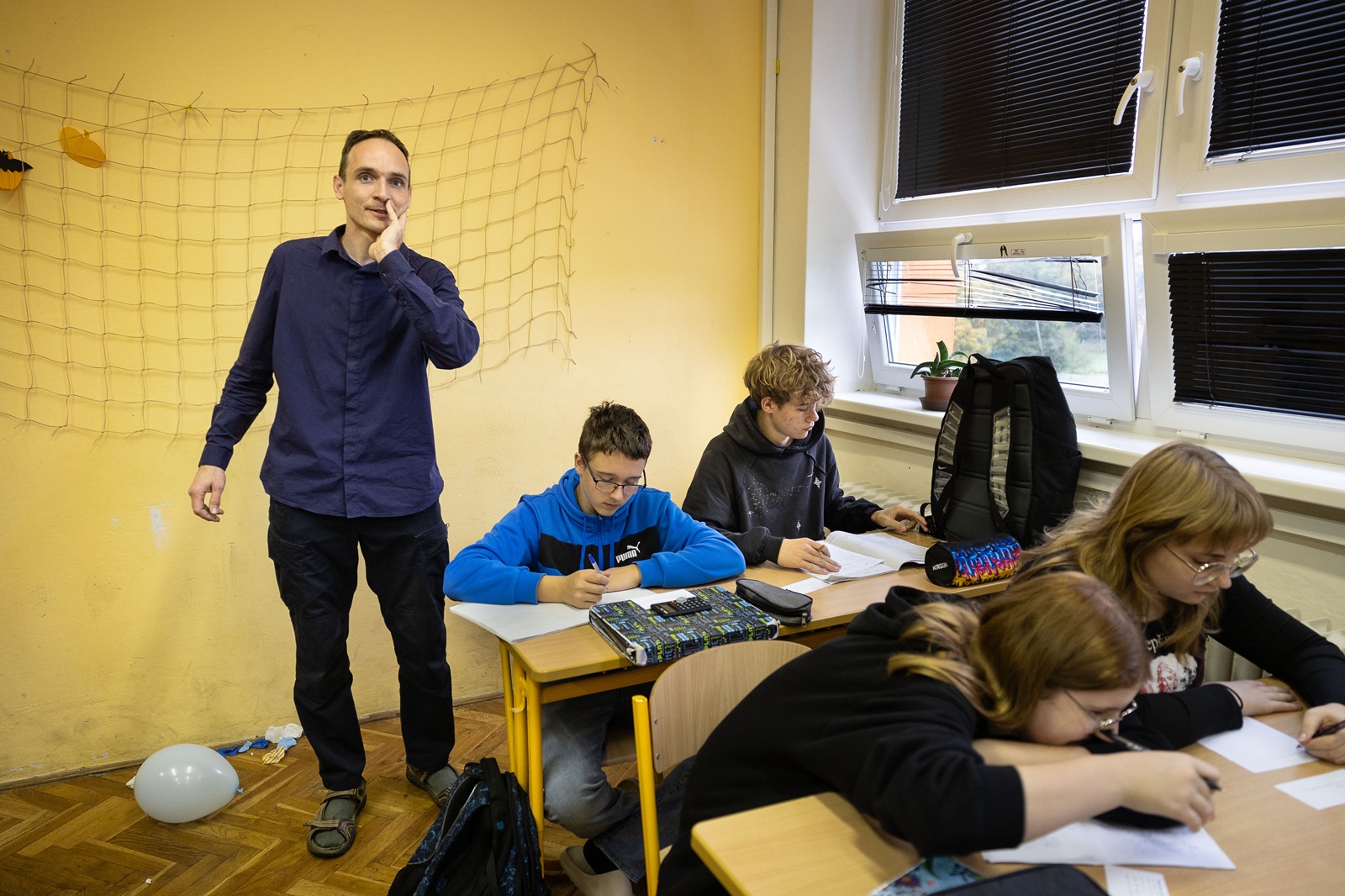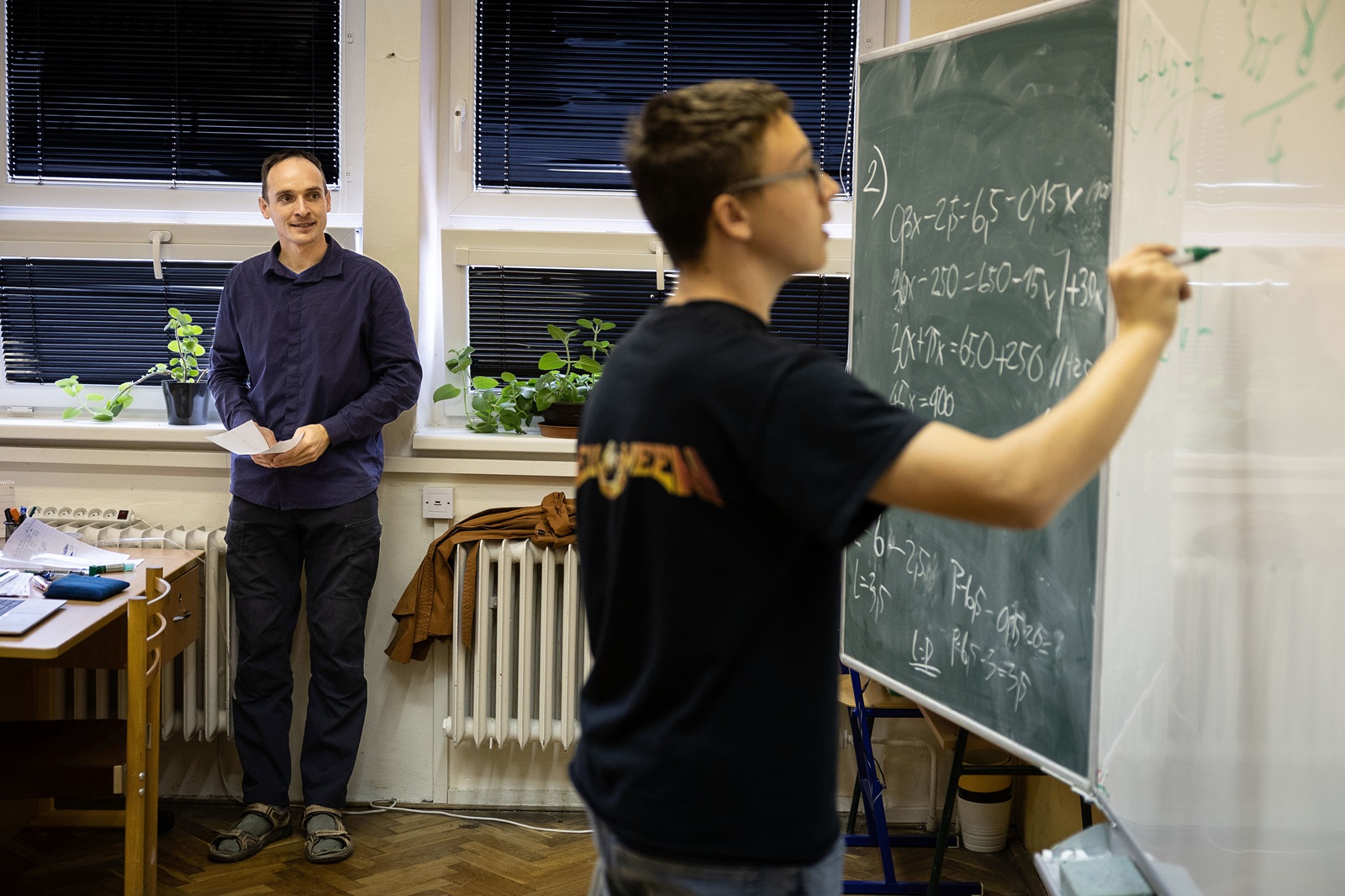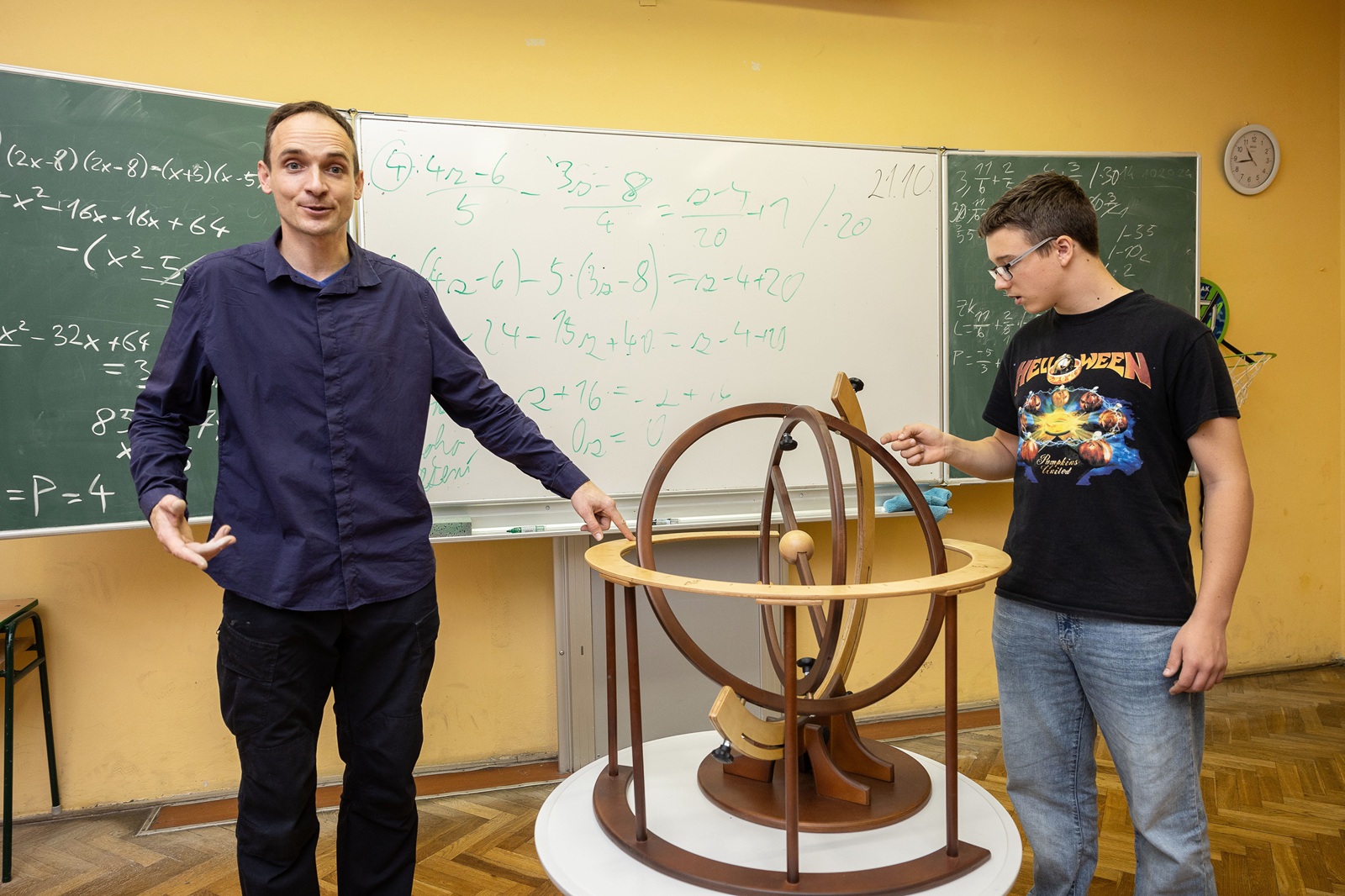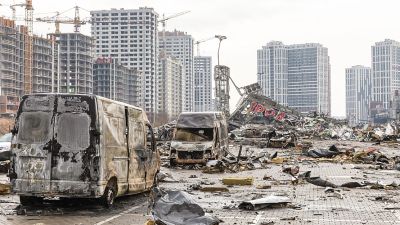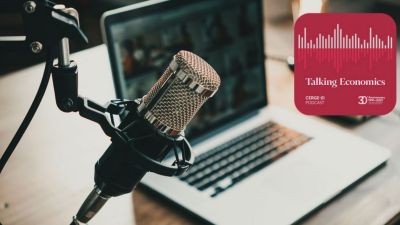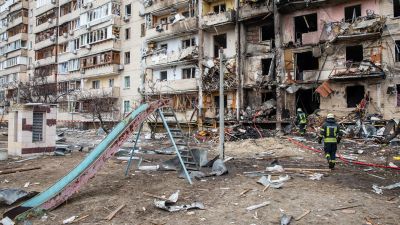“When I was in Ukraine, I came to realise that 'ordinary' human honesty is what saves lives,” says Milan Švrčina, a graduate of the Faculty of Mathematics and Physics. He was an active member of the International Legion for two years, part of the independent 1st Battalion of the Ukrainian army’s ground forces. Švrčina now teaches at a primary school in the South Moravian town of Židlochovice.
“I’m experiencing a kind of spiritual renewal here,” says the teacher, radiating calm and composure. Not only during the interview but also in his mathematics class, where he prepares his ninth-graders for an upcoming test. “I think it helps,” he reflects on whether his wartime experience gives him more authority with teenagers. “The kids see that I’m not a moralising blowhard when it comes to maintaining discipline. I tell them that the diligence and conscience they develop in school can save lives on the front line. I apply what I learned in Ukraine. I can sense the atmosphere in the group more easily and work better with that community of young people,” he summarises.
Standing up to evil
Švrčina has been teaching mathematics and physics at the second level of Židlochovice Primary School since September. Before that, from the summer of 2022, he worked as a volunteer in Ukraine. “I had been teaching in Czechia since 2014, even while studying at the Faculty of Mathematics and Physics at CU. When the war in Ukraine broke out, I was taking a break from teaching. I felt drawn to go there. I wasn’t tied to anything in the Czech Republic, no obligations to the school, plus I had been a member of the Czech Army Active Reserve for six years, so I knew I would be useful to Ukraine,” he recalls. “I was walking my dog in the Iron Mountains, and it occurred to me: 'Sure, I can teach maths and physics again. But the time ahead won’t be more stable than it is now. In fact, it will only get worse. And if I’m going to teach kids anything, it’s that when there’s evil somewhere, you should stand up to it and not make decisions out of fear. And if I’m going to teach this, I have to live it myself.' So I packed my bag and set off.”
The paradox of war
“It’s a terrible paradox of war. You’re on the front line, you know your life is at risk, but you’re at peace with it, and your mind is clear. Everything falls into place in the fresh air. That awful experience grounds you and helps you reorder your priorities. Recently, we had a safety training session at school, where they told us we have the right to refuse a ‘life-threatening’ task. I thought to myself, 'Wow, that’s a real luxury!' because on the front line, I didn’t have that option," he laughs. "You can’t control the risk. You learn to reduce the probability and consequences of injury, you automate first aid, you carry spare batteries, tourniquets, bandages… And then, grenades start falling around you, mortars are being fired at you... You hear it coming, you hear them falling... You just crouch down… It’s Russian roulette…”
The strength of 'ordinary' people
At the start of the summer of 2022, shrapnel hit his arm and damaged the nerves. He couldn’t move his fingers for a long time and, even after his health improved, he was unable to participate actively in the fighting. He then moved to logistics and supply work. His task was to distribute humanitarian aid from storage directly to soldiers. As he says, during his time in Ukraine, he met many great professionals but also saw a lot of inefficiency that cost many lives. “I would have preferred to stay and continue helping in Ukraine. But I was really disappointed with the local leadership system and didn’t want to die because of some foolish decision made by someone above me,” he says frankly.
However, what he believes in is the strength and skills of the local people – the civilians. “I met a grandmother and grandfather there, where we hid ammunition. The grandfather showed me the garden, how he takes care of his little plot, that he and his neighbours help each other to plough, and when someone has more, they allow others to gather on their land. It definitely wasn’t a one-off case. These people, despite the catastrophic situation, are to a large extent self-sufficient, which gives me hope. And maybe that’s why I felt drawn to come teach here in Moravia. Here, you can still see traces of the old landscape with small plots of land here and there,” says Švrčina. He is also launching an inter-school online cooperation project with Ukraine through the eTwinning platform (initiated by the European Commission; its goal is to encourage European schools to collaborate through the use of information and communication technologies, providing the necessary infrastructure).
In Ukraine, Milan Švrčina met the curator of an ethnographic museum in Kyiv, which houses wooden cottages from all over Ukraine, and they agreed that, through eTwinning, he would organise an online excursion for Czech children. “I have plenty of plans. But I’ve realised that working in education is just as challenging as working in the headquarters of the ground forces in Ukraine. And when it comes to personal time, it’s even harder than sitting in a trench. I don’t know when I’ll find time for all of it,” the teacher laughs.
| Milan Švrčina |
| Milan is a graduate of the Faculty of Mathematics and Physics, teacher of mathematics and physics, volunteer, and former member of the International Legion in Ukraine. Before graduating from the Faculty of Mathematics and Physics at CU, he studied for two years in Germany, where he also acquired and began using a paper planetarium in his teaching. Over time, it broke, but his planned departure to Ukraine prompted him to make his own wooden version. "So that something would be left behind after me," he says. He has created several copies. The one shown in the photo was donated to the Department of Didactics of Physics at the Faculty of Mathematics and Physics, and another was given to a primary school in Chrudim. |
| This Monday, February 24, the world is marking the third anniversary of Russia’s unprovoked invasion and war against Ukraine. You can read more about the anniversary in the international media, such as The Guardian, CNN, the BBC or wherever you follow international news. |


